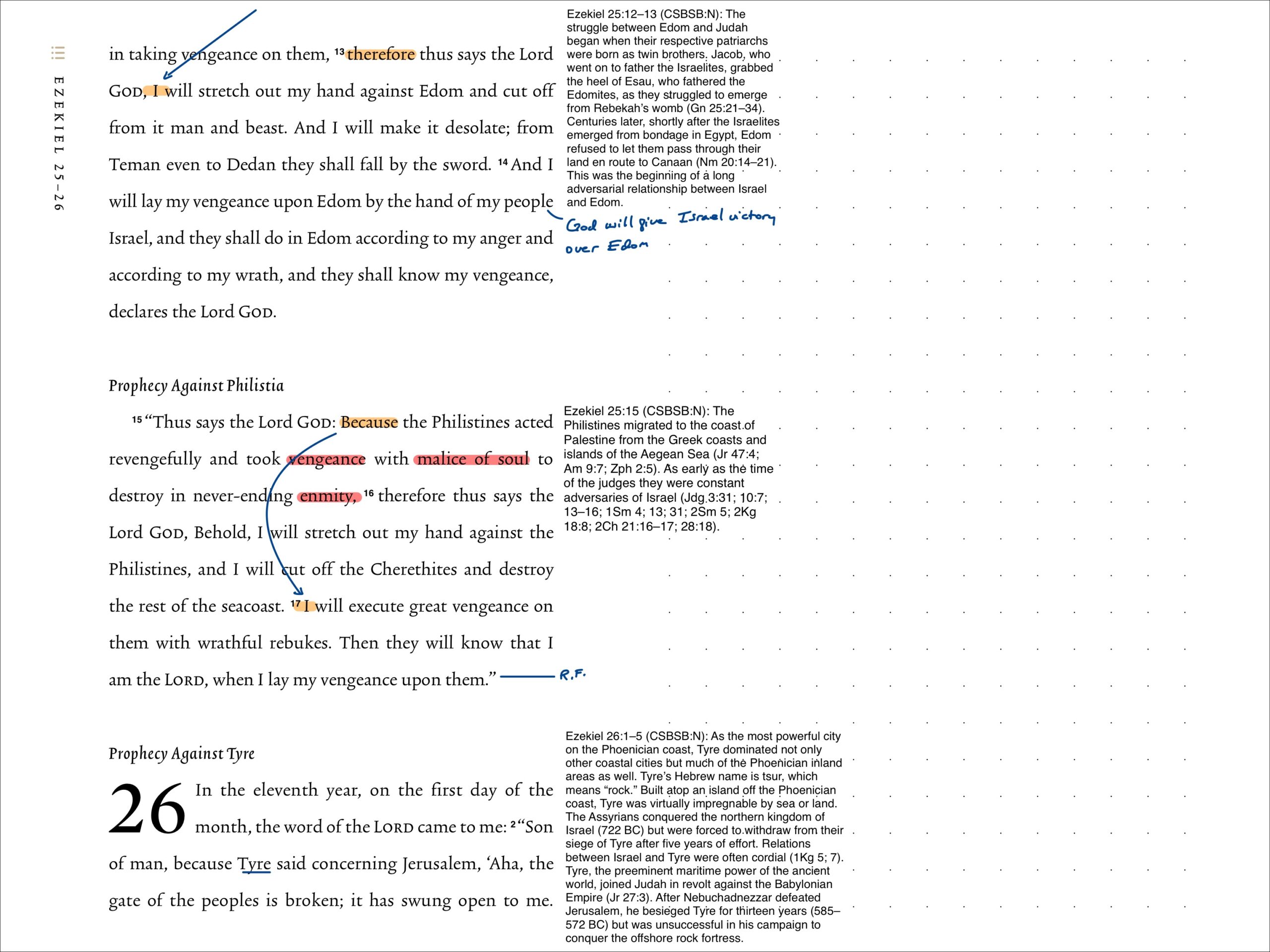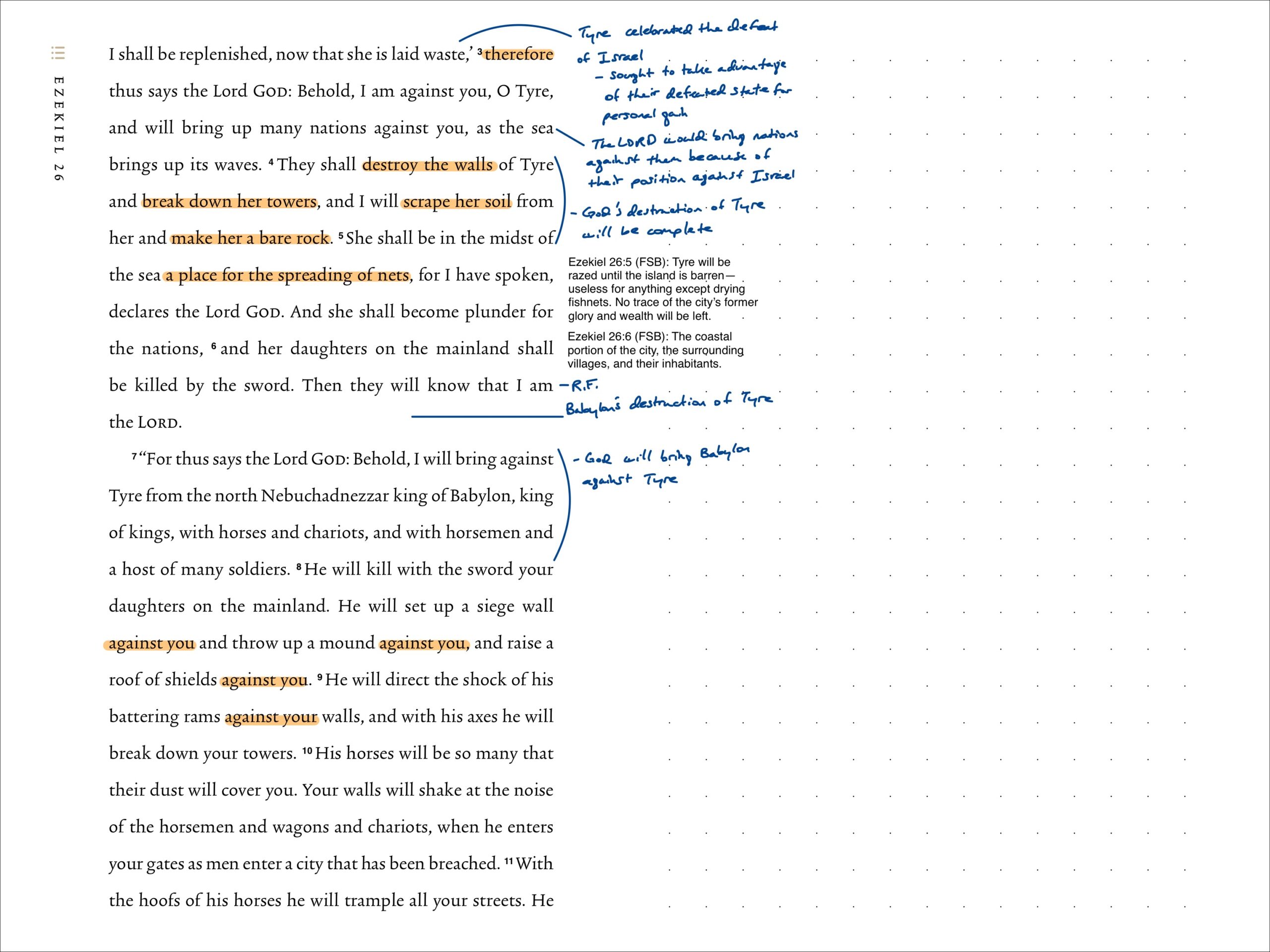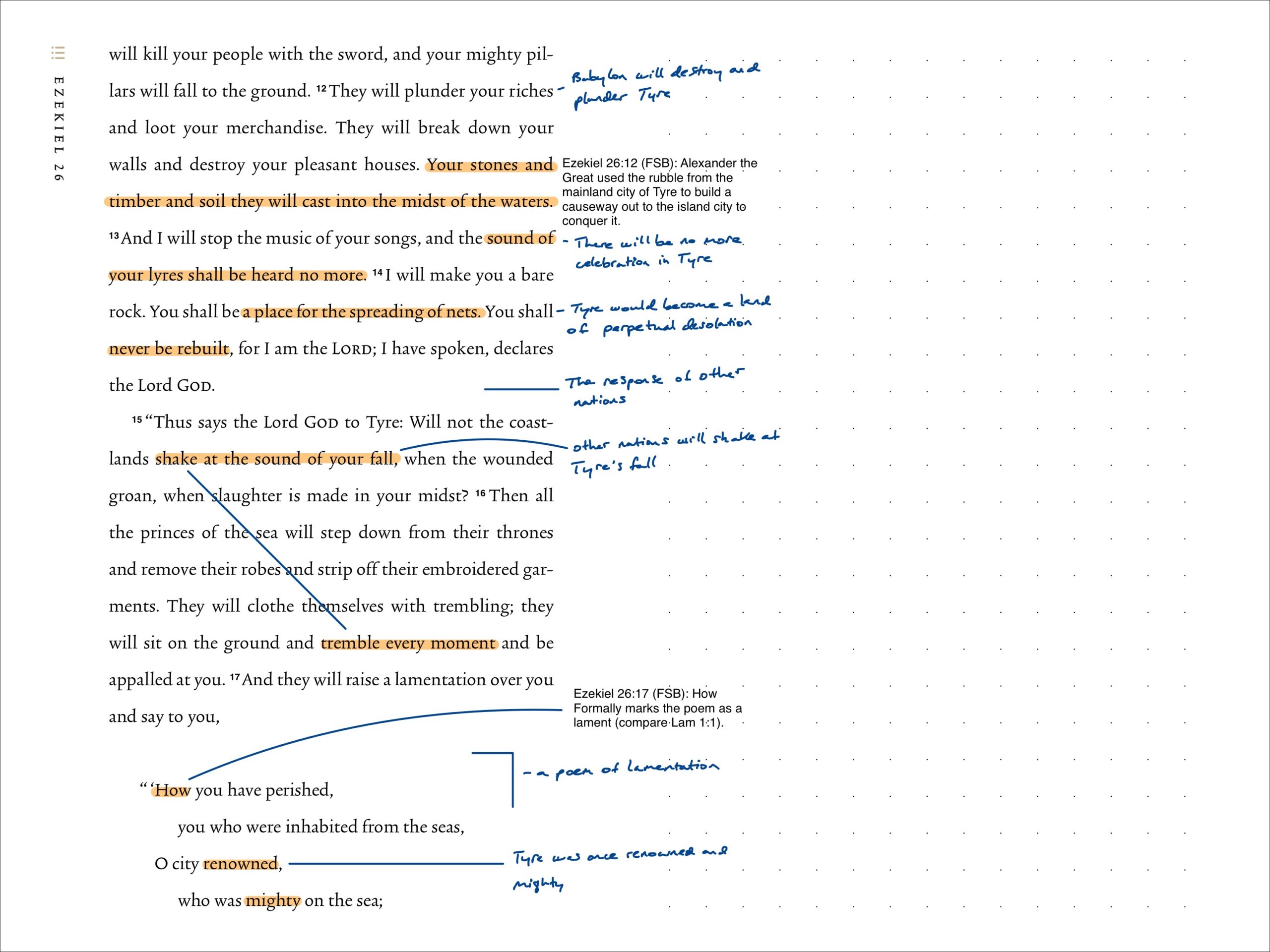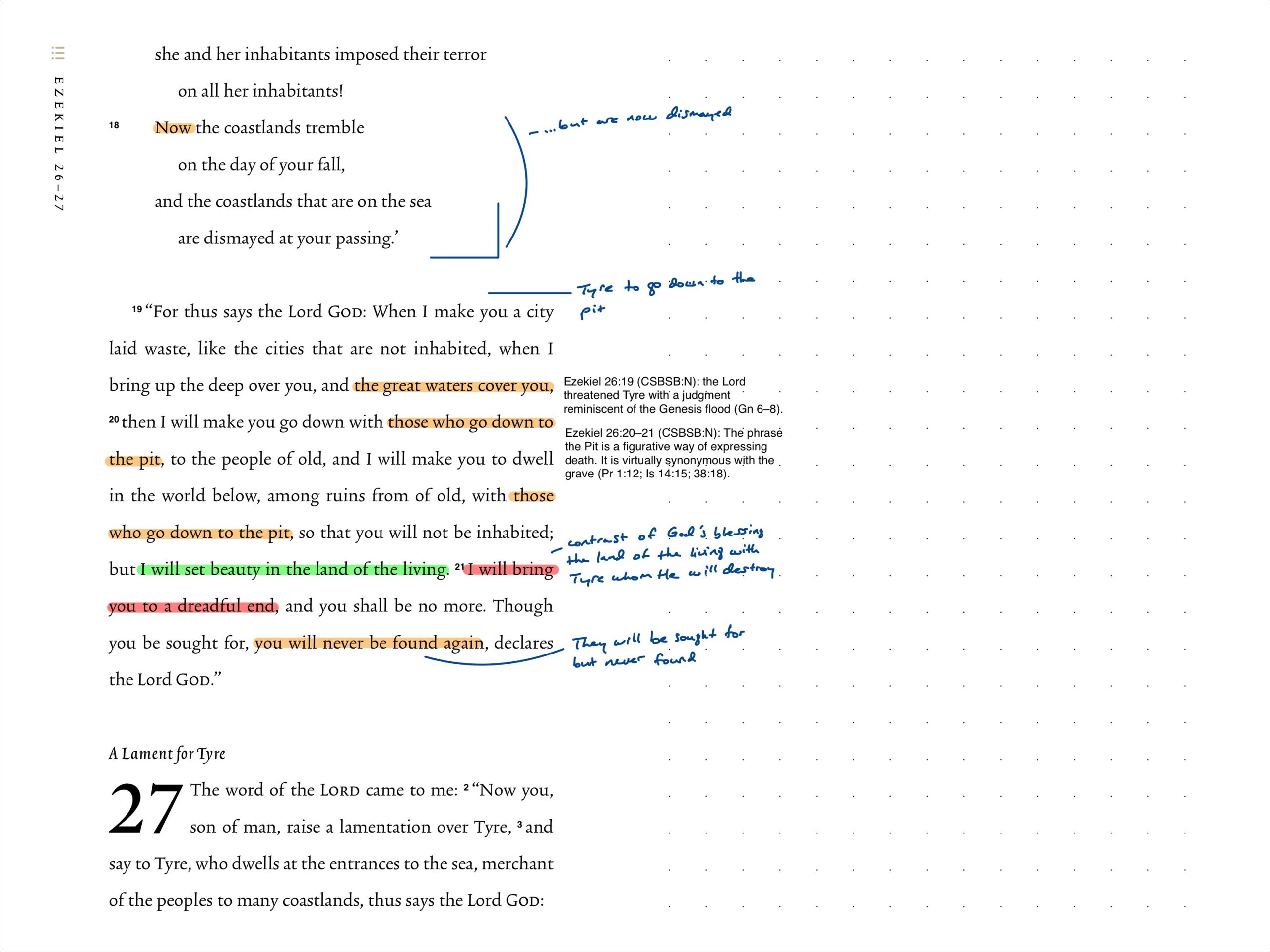| Date | Version | Reading Plan |
|---|---|---|
| @September 16, 2023 | ESV (2016) | ESV Prophets Plan 2023 |
Pericopes
- Prophecy Against Tyre
Notes
The chapter opens with a word of the Lord coming to Ezekiel “In the eleventh year, on the first day of the month”. Tyre was the most powerful city on the Phoenician coast, virtually impregnable by sea or land, dominating not only other coastal cities but much of the Phoenician inland as well. Relations between Israel and Tyre were often cordial (1 Kings 5; 1 Kings 7) and Tyre would join Israel in revolt against the Babylonian Empire (Jer. 27:3). However, after Nebuchadnezzar defeated Jerusalem, he besieged Tyre for thirteen years (585-572 BC).
Ezek. 26:2-6 describe how Tyre celebrated the defeat of Israel and sought to take advantage of her. Because of this, the LORD set Himself against Tyre and would bring up many nations against them (Ezek. 26:3). God’s destruction of Tyre would be complete, to 1) destroy the walls of Tyre, 2) break down her towers, 3) scrape her soil and 4) make her a bare rock (Ezek. 26:4). Tyre would be razed until the island was barren, useless for anything except drying fishnets (26:5).
Ezek. 26:7-12 is Babylon’s destruction of Tyre in detail. Babylon would come from the north “with horses and chariots, and with horsemen and a host of many soldiers.” (Ezek. 26:7). So many horses will Babylon have that their dust will cover the people of Tyre (Ezek. 26:10). Babylon will both completely destroy Tyre and plunder their riches (Ezek. 26:12), leaving them nothing. Tyre’s stones and timbers will be “cast into the midst of the waters” (Ezek. 26:12), representing Alexander the Great’s use of rubble from the mainland to build a causeway to the island in order to conquer it. Tyre would become a land of perpetual desolation, never to be rebuilt (Ezek. 26:14).
In Ezek. 26-15-18, the other nations respond to the destruction of Tyre. They will shake at the sound of her fall (Ezek. 26:15) and “will sit on the ground and tremble every moment” (Ezek. 26:16). The nations will raise a lamentation over Tyre, a poem beginning with “How you have perished”. The “How” formally marks the poem as a lament (compare Lam. 1:1).
The final verses (Ezek. 26:19-21) are of the great waters covering Tyre and her going down to the pit. The “great waters” represented a judgment reminiscent of the Genesis flood (Gen. 6-8) and the “pit” is a figurative expression of death, synonymous with the grave (Prov. 1:12; Isaiah 14:15; Isaiah 38:18). God provides a stark contrast of Tyre’s destruction with the beauty He will set “in the land of the living” (Ezek. 26:20). They will be sought for but will never be found again (Ezek. 27:21).
Application
God’s judgment was now on Tyre. The two nations had formerly shared good relations, but now Tyre aimed to exploit Israel and “be replenished” by her following her devastation. Tyre was once thought to be inviolable, becoming prideful in their self-perceived invincibility. But Tyre’s earthly might was no match for God who would make a dreadful end of them, never to be found again.
However dominant people or nations may seem, there is no comparison to the God of all creation. Earthly powers will rise, often to employ practices of deceit and immorality. This can lead to despondency, but we must see that their days are numbered. All who practice iniquity will have their day with the Lord, either in this life or in their meeting with Him. God is holy and righteous, allowing no sin to go unpunished. It is a promise of terrifying dread for the wicked and of resolute consolation to the disenfranchised.
Scripture Journal Notes
Commentaries & Resources Used
- ESV Study Bible. (Wheaton, IL: Crossway, 2008)
- Faithlife Study Bible (Lexham Press, 2016)
- Believer’s Bible Commentary (Thomas Nelson, 2016)
- CSB Study Bible Notes (Holman Bible Publishers, 2017)
- Matthew Henry’s Commentary on the Whole Bible (Guardian Press, 1976)
- The Bible: A Reader’s Guide (Sterling Publishing, 2011)
- The Infographic Bible (Zondervan, 2018)
- ESV Digital Scripture Journal (Crossway, 2019)



